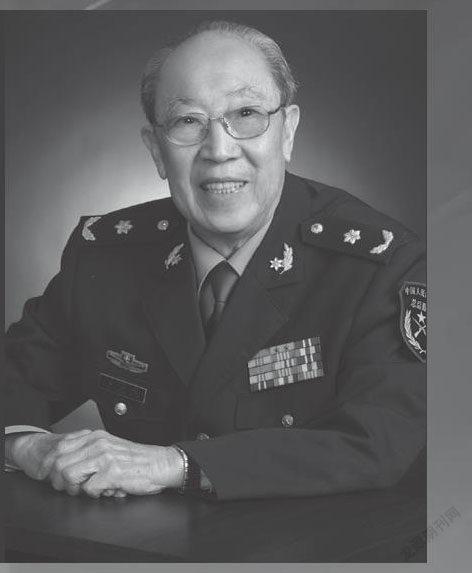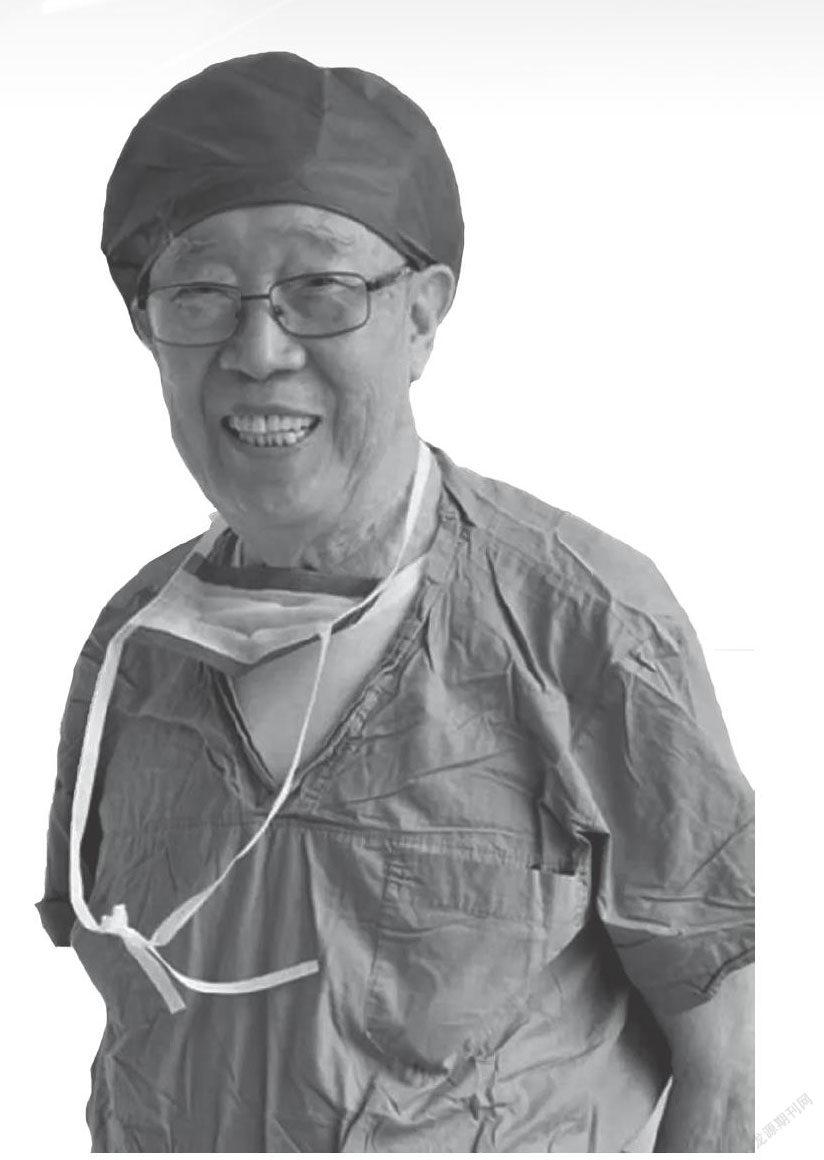“Father of Chinese Hepatobiliary Surgery” Wu Mengchao 吴孟超:中国肝胆外科之父
本刊编辑部



2021年5月22日,被誉为“中国肝胆外科之父”的吴孟超院士逝世,享年99岁。这位90多岁高龄仍坚持不下手术台的老先生,说过一句话:“名誉算什么?我不过就是一个吴孟超嘛。”他一生,这样默默奉献,为国家、为医学、为病人付出一切。但谁能不承认他就是夜空中熠熠生辉的一颗明星呢?
Wu Mengchao, founder of 1)hepatobiliary surgery in China and teacher of 2)roughly 80 percent of the experts and doctors specializing in 3)liver surgeries in the country today, died at age 99 in Shanghai on May 22.
Wu Mengchao was born in Minqing County, Fujian Province in 1922, and went to Malaysia with his family as a child. Later, he returned to China alone and was admitted to the School of Medicine of Shanghai-based Tongji University (now as Tongji Medical College of Huazhong University of Science and Technology). After graduating in 1949, Wu Mengchao became a 4)surgeon of the first hospital 5)affiliated with the Second Military Medical University in Shanghai.
In 1956, he joined the Communist Party of China as well as the People's Liberation Army (PLA) and completed the first liver 6)tumor 7)resection in China in 1960.
1) hepatobiliary [hep?t???b?lj?r?] adj.肝膽的
2) roughly [?r?fli] adv.大体上
3) liver [?l?v?(r)] n.肝脏
4) surgeon [?s??d??n] n.外科医生
5) affiliate [??f?lie?t] v.附属
6) tumor [tju?m?(r)] n.肿瘤
7) resection [r??sek?n] n.(外科)切除术
In more than 75 years, Wu Mengchao led the team to successfully complete the world's first middle hepatic lobectomy, and successfully remove the world's largest hepatic cavernous hemangioma, which was the youngest patient in the world. The success rate of liver cancer surgery in China has increased from 15% in the early 1960s to 98.5%, and the overall 5-year survival rate of patients undergoing liver cancer resection is close to 50%.
In 2006, Wu Mengchao won the 2005 National Highest Science and
Technology Award. He 8)resolutely donated RMB 6 million in prize money, and joined 6 well-known academicians to 9)submit to the State Council a proposal for “integrated research on the pathogenesis and prevention of hepatitis B liver cancer”, which was included in a major national science and technology project.
Long before that, in 1997, Wu already set up a fund with a total of 5 million yuan bonus and social donations that he received to reward experts with outstanding achievements in the field of hepatobiliary surgery in China.
8) resolutely [?r?z?lu?tli] adv.坚决地
9) submit [s?b?m?t] v.提交
Today, the National Liver Cancer Science Center has stood in Anting, Shanghai, and has become the world's largest liver cancer research and prevention base.
Promoting Chinese liver medicine from acratch, from being to being 10)refined, Wu Mengchao's achievements have attracted the attention and admiration of colleagues around the world.
“A person's life is limited, and you will pass without a hurry. Therefore, I must hurry up and fight every second to do more for the country and the people.” Wu Mengchao once said.
Now, Wu Mengchao can finally have a rest, but “Wu Mengchao” star, which the international community named the 11)asteroid 17606, is still shining brightly in the sky.
10) refine [r??fa?n] v.改善
11) asteroid [??st?r??d] n.小行星
词组加油站
specialize in专门研究
from scratch从零开始
吴孟超,中国肝胆外科的创始人,也是现今中国肝脏外科学方面80%的专家、医生的老师,于5月22日在上海逝世,享年99岁。
吴孟超,1922年出生于福建省闽清县,幼时随家人前往马来西亚。后来,他独自一人回国,考入同济大学医学院(今华中科技大学同济医学院)。1949年毕业,吴孟超进入上海第二军医大学第一附属医院,成为一名外科医生。
1956年,吴孟超加入中国共产党并参军入伍,并于1960年成功完成中国第一例肝癌切除手术。
在超过75年的工作时间里,吴孟超领导团队成功完成了世界上第一台人体中肝叶切除手术,成功从世界最年幼的病人身上切除了世界最大的肝海绵状血管瘤。中国肝癌手术成功率从20世纪60年代初的15%上升到现在的98.5%,肝癌切除手术病人术后五年总存活率接近50%。
2006年,吴孟超荣获2005年度国家最高科学技术奖。他毅然捐出了600万元的奖金,又联合6位知名院士向国务院提交了“集成式研究乙型肝炎肝癌的发病机理与防治”的建议案,该建议案被列入国家科技重大专项。
早在1997年,吴孟超就用其所获奖金和社会捐赠共500万元成立了一项基金,用于奖励中国肝胆外科的杰出人才。
如今,国家肝癌科学中心已屹立在上海安亭,成为世界最大的肝癌研究和防治基地。
推动中国肝脏医学从无到有,从有到精,吴孟超的成就令全球同行瞩目、敬佩。
“一个人生命有限,你不抓紧一下就过去了,所以我要抓紧时间,分秒必争,为国家、为人民多干点事。”吴孟超曾说。
如今,吳老终于可以好好休息了,但国际社会命名为“吴孟超”星的17606号小行星,仍在天幕中熠熠生辉。
- 疯狂英语·初中版的其它文章
- Home-school Cooperation Makes Our Party Branch Activity Colorful 家校共建为党庆生
- Watch the Performance and Keep the Mission in Mind 观看演出铭记使命
- Voice Love for the CPC in the Media Creation Competition 在媒体创作比赛中抒发对党的热爱
- Learn the History of CPC and Take on the Responsibilities 学习党史担负未来
- 情景交际
- Heart to Heart with the CPC与党同心

